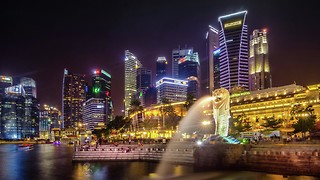The rugby world cup has proven New Zealand’s identity
The All Blacks carried the weight of New Zealand on their shoulders. Thank god they won, then.

Apparently, it was a busy summer. Riots in London, the biggest economy in the world downgrading it's debt and the News of the World collapsing, taking with it my Sunday reading. However,the tragedy of the collapse of our favourite gossip rag totally passed me by. Why? Because out in New Zealand, where I spent my summer, it has all been about the Rugby. Our national paper got it's priorities right last week: 7 pages on the build up to the final, one column on the imminent collapse of the Eurozone. The last two months have seen an estimated 90,000 tourists descend on God's Own Country, and New Zealand has put on it's best clothes and welcomed them to the best party in the Southern hemisphere.
You probably didn't need me to tell you that the Kiwis like their rugby. And we paid the financial price to bring to NZ: despite tickets selling better than excepted, our Government is on track to make a NZ$4million loss. Budgeting on making a loss on tickets, New Zealand is banking on the fact that the tourist revenues will cover the cost. This is not a new idea, and, like the Olympics in London next year, it is the centre of a bigger plan to revitalize run-down districts. Yet in the cafes of Auckland and Wellington, no one cares a jot about the economic costs; we are merely celebrating winning the damn thing.
It would be easier for an outsider to forget just how important rugby is to every New Zealander; it is very much more important than football in the UK. For the British, success (or failure) in the football is important for a few weeks every couple of years; for Kiwis, success in the rugby is central to our national identity. The reasons for this are steeped in our colonial history and identity.
In 1905, when still a British Colony, the All Blacks toured England for the first time, and wiped the floor with the British teams. This was the crucial moment in the creation of a genuinely 'Kiwi' identity; for the first time, New Zealand saw itself as different from the mother country, as having something different to offer. Not just a colonial backwater, the All Blacks were seen as innovative plucky up-starts who taught the established world a thing or two; a national image that still rings true for Kiwis today. Yet for most of the century, New Zealand has struggled to create a distinctively Kiwi identity; until the 1970's, New Zealand was overwhelming tied, both culturally and economically, to mother-England. For those living in a quasi-colonial backwater, the All Blacks were the a rare example of a distinctively 'Kiwi' success story. They were one of the few places where New Zealand could take on the world.
Over time, New Zealand has begun to re-imagine itself as a south-east Asian country, and to forge a distinctive, and increasingly Polynesian, identity. The All Blacks are central to this; 'our boys' are what New Zealand wants to be, successful and competitive people who are taken seriously by the rest of the world. Our rugby team is an immense focus of national pride: this is one of the few things that we don't take lessons about, that we can teach to the world.
This is why hosting the games was taken so seriously. People recognise that the RWC was a unique opportunity to showcase all that is good about New Zealand and, over the last month, thousands of tourists have experienced the hospitality and friendliness that are important aspects of what it means to be a Kiwi. However, much more importantly for us, winning the Cup has proved to New Zealanders that we can make it. Winning the Cup and the success of the All Blacks has infused New Zealand with a new confidence, and left them feeling ready to take on the world. Rugby really is that important to us.
 News / Council rejects Wolfson’s planned expansion28 August 2025
News / Council rejects Wolfson’s planned expansion28 August 2025 News / Tompkins Table 2025: Trinity widens gap on Christ’s19 August 2025
News / Tompkins Table 2025: Trinity widens gap on Christ’s19 August 2025 Comment / My problem with the year abroad29 August 2025
Comment / My problem with the year abroad29 August 2025 News / ‘Out of the Ordinary’ festival takes over Cambridge 26 August 2025
News / ‘Out of the Ordinary’ festival takes over Cambridge 26 August 2025 Sport / Return to your childhood sport! 29 August 2025
Sport / Return to your childhood sport! 29 August 2025









